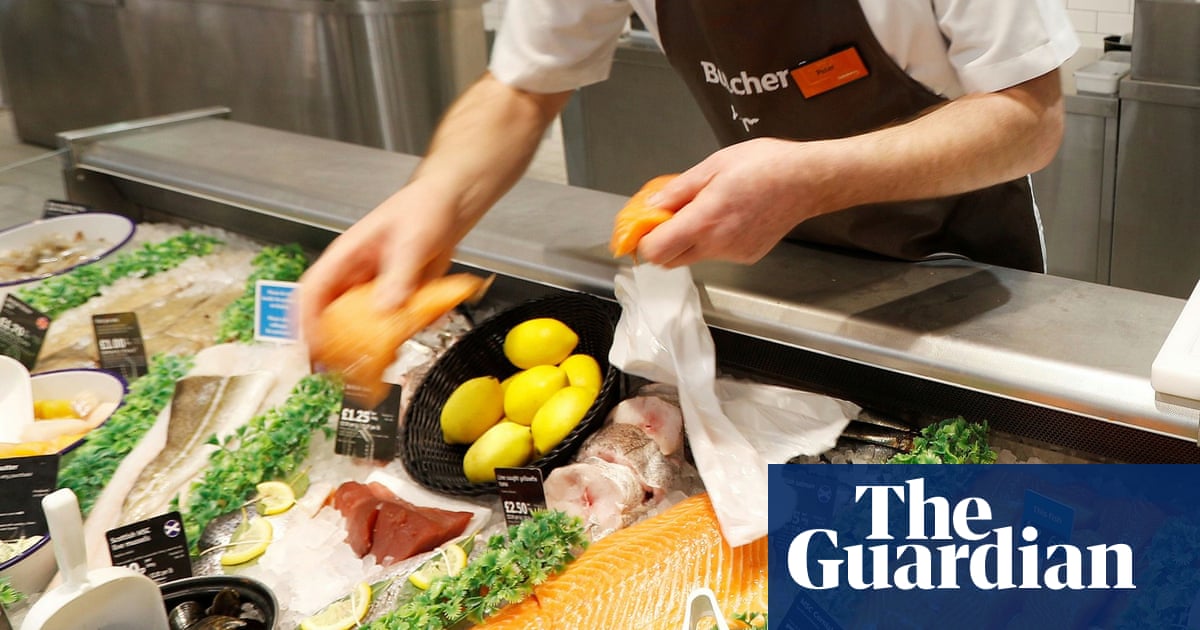Retailers warn inflation could hamper UK shoppers in run-up to Christmas

Shoppers’ ability to afford Christmas treats has been put under threat as retailers warned November could mark a turning point for inflation, with the recent fall in prices slowing amid increased fresh produce costs and fewer discounts on the shelves.
Shop prices fell by 0.6% in November, compared with a fall of 0.8% in October, according to the latest report from the British Retail Consortium (BRC) and research firm NielsenIQ. The slowdown in deflation was driven by non-food goods and a slight increase in fresh food prices, including seafood.
It emerged alongside evidence that household disposable incomes fell for only the second time this year in October – by £1.98 – as higher energy prices pushed up household bills, according to the latest Asda Income Tracker.
The Centre for Economics and Business Research (CEBR), which produces the tracker for the supermarket, predicted that households will face “dampened spending power over the festive period”. It said the rising cost of essentials would be particularly concerning for households on lower incomes.
“With significant price pressures on the horizon, November’s figures may signal the end of falling inflation,” Helen Dickinson, the chief executive of the BRC, which represents most major retailers.
“The industry faces £7bn of additional costs in 2025 because of changes to employers’ national insurance contributions, business rates, an increase to the minimum wage and a new packaging levy. Retail already operates on slim margins, so these new costs will inevitably lead to higher prices.”
Dickinson said November was the first time in 17 months that price changes have been looked worse for shoppers than the previous month, led by fresh products such as seafood, which is more vulnerable to high import and processing costs, especially during winter.
Tea prices also remained high as poor harvests in key producing regions continued to impact supply.
Dickinson said that, while coffee prices, which have risen rapidly in the past few years, have had a “momentary dip”, further price rises in shops are imminent as global wholesale coffee prices approach record highs.
The slowdown in deflation was also fuelled by many retailers unwinding some of their discounting ahead of the Black Friday promotional period, except in struggling sectors such as fashion and furniture.
Consumer group Which? warned bargain hunters to do their research when searching for Black Friday deals, which may not be as attractive as hoped.
The group found that 92% of products being discounted by the eight biggest home and tech retailers offered in last year’s Black Friday fortnight were the same price or cheaper at other times of year. The researchers looked at 227 products on promotion between 20 November and 1 December.
For six in 10 of those deals, the higher price given as part of the promotion had been in place less than half the time the product was available in the year before the promotion – suggesting it was common for the product to be discounted.
Which? found 14 “deals” where the higher price had not been charged once at that retailer in the previous 12 months.
In one example, Which? said a Remington Shea Soft hair dryer at Boots was £18.99 on Black Friday, claiming to be reduced from £49.99 – a huge 62%. But in reality, it had never been £49.99 at Boots in the preceding 12 months.
Boots said: “Which? reviewed a very small number of our Black Friday deals from last year and in all cases, the items were at a lower price whilst on promotion or when price matched against competitors.”
Related
Tesco trials giant trolley scales in Gateshead
Although some Reddit users who commented on the photo of the scales were positive with one saying "they are 10x more convenient and faster", many were more crit
Popular shop closes doors in ‘huge loss’ to loyal customers
A beloved high-street shop will close its doors after 20 years in business, coming as a "huge loss" to loyal customers. Simply Baby in Lancaster announced on We
Shoppers claim Tesco has gone too far with new ‘dystopian’…
Tesco is trialling a new checkout feature (Picture: Alex Segre/UCG/Universal Images Group via Getty Images) Tesco shoppers in Gateshead might no
Stars from BBC show Gladiators to appear at Bluewater Shopping…
The stars of the show will be at Bluewater Shopping Centre on Saturday, March 22, and Sunday, March 23, for an "action-packed immersive experience". The













